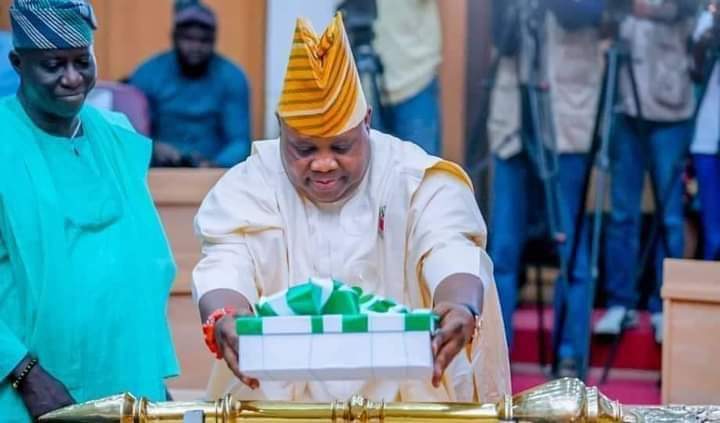The civilian administration of former President Shehu Shagari was overthrown by a military coup led by Major-General Muhammadu Buhari by the end of 1983.
The coup was the fifth after independence in 1960, with troops taking key positions around the capital in Lagos. The takeover is reportedly as a result of an allegation of corruption under Shagari’s administration also dealing with a deepening crisis in its finances.
Read the report by UPI in 1983 below:
Nigeria’s civilian government was overthrown Saturday in a ‘bloodless’ coup by military officers who charged that President Shehu Shagari had plunged Africa’s largest democracy into a ‘serious economic predicament.’ Lagos Radio, monitored in London by the British Broadcasting Co., identified the new head of state and armed forces commander as Maj. Gen. Mohammad Buhari, who said he took over ‘with humility and a deep sense of responsibility.’
Buhari was an important member of the military government of Gen. Murtala Mohammed who gained power in a bloodless coup in July 1975, according to a journalist in London specializing in African affairs. Newspaper report of the coup that removed Shagari in December 1983.
Diplomatic sources in Paris said Shagari, 58, a pro-Western Moslem elected to a second four-year term in August, was under arrest with most of his ministers and parliamentarians, a French news agency reported. There was no confirmation on Lagos Radio.
‘The changes became necessary in order to put an end to the serious economic predicament and the crisis of confidence now afflicting our nation,’ Buhari said on the radio broadcast.
Buhari said a ‘federal military government’ was in power and members of a new Supreme Military Council, National Council of States and other governing bodies to be presided over by a military governor would be named soon.
The new rulers sealed off the oil-rich west African country of more than 90 million people and imposed a dusk-to-dawn curfew. One radio broadcast 14 hours after first news of the coup broke said ‘the situation is well under control and there is no cause for alarm.’ In Washington, a State Department spokesman said the U.S. Embassy in Lagos had monitored the radio announcements of the coup but had no further comment.
Coup leaders promised to protect all foreigners. British television said there were reports of shots being fired but that Lagos was generally quiet after troops took up positions in the streets. A senior army officer, Brigadier Sanaa Abacha said the coup had been a ‘bloodless and painstaking’ operation and urged the nation to be law-abiding.
All airports, seaports and border crossings were closed and most communications cut. The new ‘federal military government’ said the American-style constitution had been suspended, all political parties banned and all federal officials and 19 state governors must surrender within seven days to police stations.
Lagos Radio said the army chief had resigned by noon Saturday and the staffs of the army, navy and air force had accepted ‘voluntary retirement.’ It was the fifth military coup in Nigeria since the country gained its independence from Britain in 1960. Nigeria had been the world’s fourth largest democracy, after India, the United States and Japan.
The Lagos Radio announcement blasted Shagari’s civilian administration for nearly bankrupting Nigeria, which three years ago was riding the crest of an oil boom with $12 billion in reserves. ‘You are all living witnesses to the grave economic predicament and uncertainty which an inept and corrupt leadership has imposed on our beloved nation for the past four years,’ said Abacha.
‘Our economy has been hopelessly mismanaged and we have become a debtor and a beggar nation.’ Shagari was first elected president in 1979, ending 13 years of military rule at a time when the economy was booming because of high oil prices and expanding production.
As oil prices started to drop in 1981, Nigeria’s oil revenues – which account for 85 percent of government revenues — fell from $26 billion a year to under $10 billion. Some 2 million foreign workers were expelled by the Shagari government in February because of rising unemployment caused by the oil industry slump.
Shagari presented a stringent 1984 budget to the National Assembly and warned of heavy cuts in government subsidies because of declining oil revenues in the face of a world oil glut.
In his coup broadcast, Abacha charged there was inadequate food at reasonable prices in Nigeria, health services were in a ‘shambles,’ hospitals had no drug or equipment and the educational system was deteriorating at an alarming rate.







